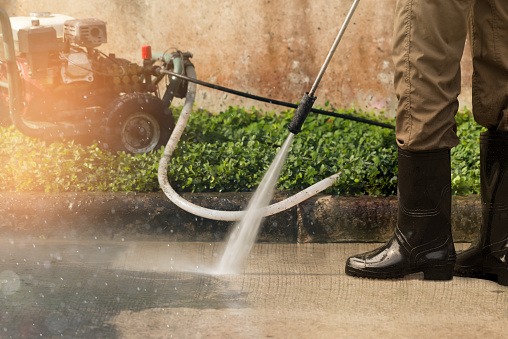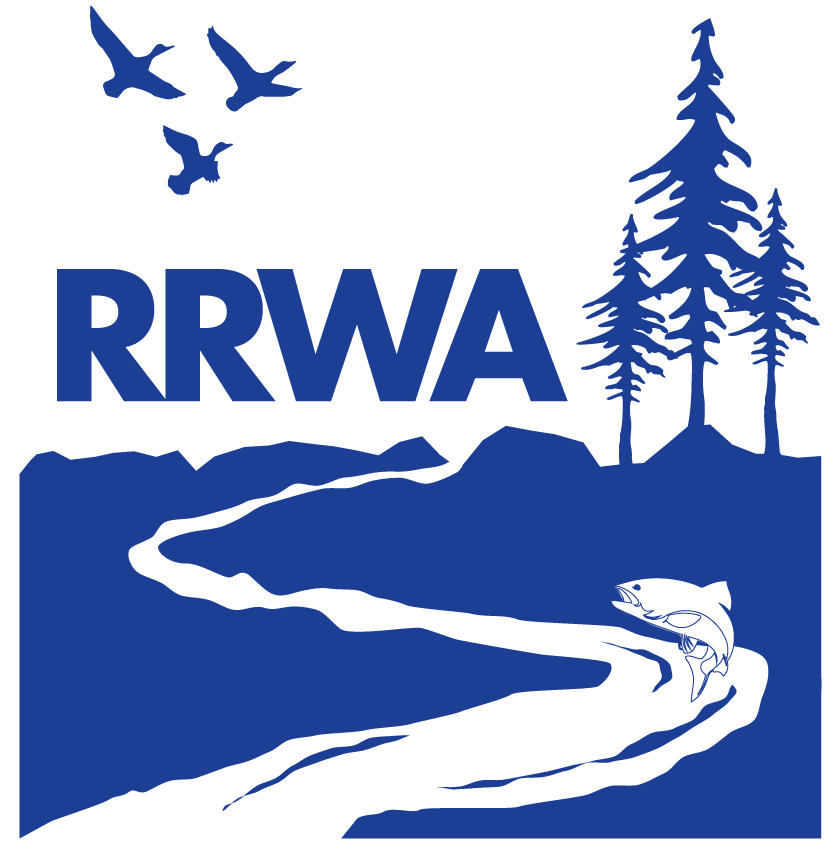You Deserve a Cleaner Life, but so do our Creeks

Power washing (or pressure washing) can be an important tool for achieving quick and satisfying results when cleaning and maintaining hard surfaces, buildings, or large equipment which can otherwise be difficult to clean. But did you know that if you’re not careful, that dirty wash water can end up in our creeks? Before pulling out your power washer this spring, remember that fish and wildlife deserve a clean place to live too. There are a few simple precautions you can take that will help you be environmentally responsible and protect the water in our creeks while using your power washer.
When using a power washer, just because you wash it out of sight, doesn’t mean it’s gone forever. If not properly contained, your washed-away debris will flow down the streets and end up in our creeks and waterways through the storm drains. Storm drains are for rainwater and rainwater only! That means no soap or cleaning products, no paint scrapings, and no other sediment or debris that could be washed away by your power washer. When these unwanted pollutants enter storm drains, they go directly into our waterways and can contaminate wildlife habitats and the water in our creeks.
We all want to enjoy a clean and healthy Russian River so let’s not pollute it with our runoff.
That brings us to the question of how to power wash responsibly. Before deciding to use a power washer, make sure you are aware of drought restrictions in your area. Despite the much-needed rainstorms that filled our reservoirs in January, conserving water continues to be an important tool to protect our future water supply. According to the California State Water Resources Control Board, emergency drought restrictions are still in place for all California residents through January 2024. This includes the following restriction on power washing: “The use of potable water for washing sidewalks, driveways, buildings, structures, patios, parking lots, or other hard surfaced areas, [is prohibited] except in cases where health and safety are at risk.”
This means that the use of a power washer or pressure washer is only allowed for the purposes of maintaining health and safety and cannot be used solely for aesthetic purposes. This restriction helps prevent wasteful and unreasonable potable water use.
Keeping this restriction in mind, if power washing is necessary to maintain health and safety or if you are using recycled water in your power washer, please remember to protect our creeks and rivers from harmful and potentially toxic runoff, by following these important precautions:
- Block storm drains near your site with waterproof sandbags to prevent unwanted runoff.
- Always clean the area first using a dry method like sweeping or using a blower and place all sediment and debris in the garbage.
- If oil is present, be sure to clean with water-free methods prior to power washing and place an oil-absorbent boom around the storm drain inlet during power washing.
- Use plain, cold high-pressure water, and avoid using chemicals, cleaning solutions, or hot water.
- Capture and direct dirty water to landscaped areas or to sanitary sewer systems, (i.e., indoor sinks, showers, bathtubs, floor drains, toilets, and outside building cleanouts). Be sure your landscaping does not have a storm drain inlet that the discharge could potentially flow into.
- Remember to check local ordinances and follow all regulatory procedures.
- Whether you’re using a power washer or not, it is important to remember “Only rain down the storm drain!” Do your part to conserve water, reduce runoff, and keep our watershed happy and healthy for all.




